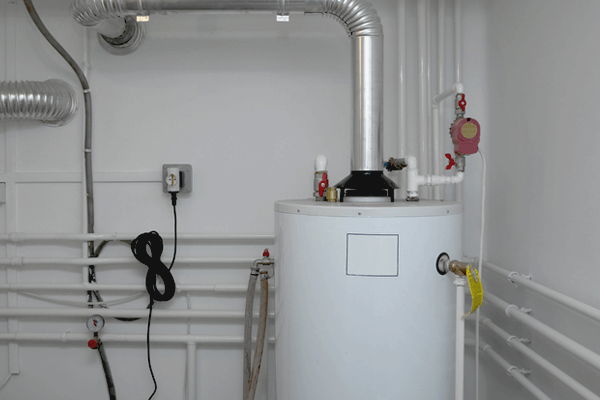Boilers play an important part in your household since they keep your home warm and provide hot water. As a result, it is critical that you understand what to look for in order to ensure that you have the best boiler in place to lower your energy costs and maximize efficiency. We will assist you understand how to pick the correct boiler for your house, whether you are replacing an old boiler or a new homeowner.

Types of Boilers
There are various different types of boilers available for residential use, and each has its own set of advantages and disadvantages that you should consider when making your choice.
Combi Boilers
Combi boilers are known for their energy-efficiency. They serve a dual role by managing both your home’s water and central heating. Moreover, beyond their efficiency, they are also ideal for small households as they require minimal water consumption, which is why they are also known for having a beneficial environmental impact. Moreover, combi boilers tend to be small, which makes them perfect if you have constricted space in your household.
However, because to their small size and modest water usage, they can cause water pressure issues and limit the amount of water on demand. If you run more than one shower or hot tap at the same time, you may have problems. As a result, they are ideal for small families or houses with low water consumption.
Heat-only boilers
These are often referred to as normal or conventional boilers. This type of boiler, unlike combi boilers, uses water tanks. To offer hot water and central heating for the families, they have a hot water cylinder in the loft as well as two water tanks. As a result, they typically demand large spaces and are more expensive to install. Another potential disadvantage of this model is that it cannot provide hot water on demand as you have to wait for the hot water cylinder to refill if it runs out.
However, unlike combi boilers, they can operate even when water pressure is low, and while this model is not as efficient as combi boilers, it can be highly cost-effective if you have an old heating system in place.
System boilers
Like conventional boilers, system boilers do not require a cold-water feed tank, but they differ in that they do not get water directly from the main water supply, meaning that they do not require as much space as conventional boilers. Additionally, they can easily meet water demand thanks to their storage capabilities.
Again, because they can give hot water to numerous sources at once, they are preferable for larger homes and those with high water demands. They are less difficult to install than heat-only boilers, but heat may be lost if they are not adequately insulated.
How do Boilers Run?
Beyond the different types of boilers available, it is helpful to understand how these work. For instance, did you know there are a variety of fuels which boilers can utilize to function? These can include gas, electricity, solar energy, and even biomass.
When it comes to boilers, gas is the most preferred sort of fuel in the UK. Boilers operate primarily by combustion, with gas entering the unit through a pipe that connects to a gas main in the street once a valve is opened. The gas then enters the combustion chamber, where an electric ignition system ignites the gas jets, which then play onto a heat exchanger, which uses the heat energy to heat the water in the pipes.
Even if you intend to use a gas boiler, it is useful to understand how alternative fuels affect the functioning of your boiler.
Electric boilers, on the other hand, can be quieter, have reduced maintenance expenses, and have less heat loss. Furthermore, solar-powered electric boilers are now available, allowing you to choose environmentally friendly options helping you reduce your environmental impact and also save money in your energy bills.
Similarly, biomass-fired boilers are an environmentally friendly option because they use renewable energy derived from organic materials such as wood and plants. Nonetheless, this alternative tends to be a particularly costly upfront expenditure but likely a less expensive one in the long run.
What Factors to Consider
So, how do you select a new boiler for your home? First, consider your requirements. You must consider the size of the house, the number of people that reside there, and the number of bathrooms. You should also evaluate the amount of storage space available for boilers and water tanks, as this may limit your alternatives. If you are unclear about which solution is ideal for your home, you can always consult with a heating engineer.
